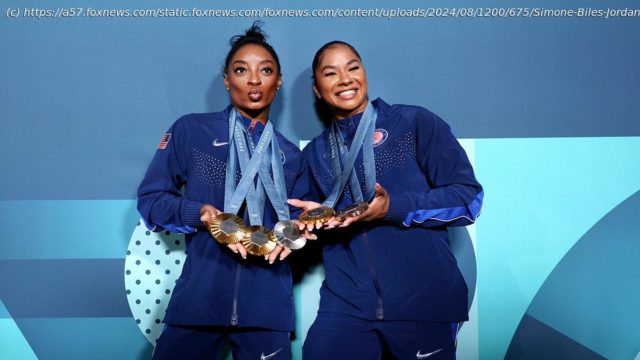New footage in a Netflix documentary may contain evidence in a contentious court case over Jordan Chiles’ right to a bronze medal at the Paris Olympics.
Jordan Chiles is coming to try and get her bronze medal back, and Simone Biles may be right there behind her.
Chiles and her legal team filed an appeal to the Federal Supreme Court of Switzerland to undo a ruling in the Paris Olympics that denied her a third-place finish in the women’s gymnastics floor routine final. Chiles was bumped from third place to fifth place after an appeal by U.S. coaches that increased her score over Romanian competitors was submitted too late. She was told to give back the bronze medal, but there are no reports that indicate she has or will.
Now, as Chiles and her legal team look to reinstate her as the official medalist, their case may be aided by footage in a new Netflix docuseries focused on Biles.
According court documents filed in the Federal Supreme Court of Switzerland on Monday, her attorney has submitted footage from the company producing Biles’ Netflix series that they allege shows visual evidence in favor of Chiles. They claim the footage proves that the request for the review that bumped Chiles’ score up was not submitted past deadline, according to multiple reports.
The documents say that the inquiry by U.S. coach Cecile Landy came 49 seconds after the result came in, which falls within the 60-second window granted for appeals.
Chiles’ lawyers have argued that the Court of Arbitration for Sport (CAS), which made the final ruling, “violated Chiles’s fundamental ‘right to be heard’ by refusing to consider the video evidence that showed her inquiry was submitted on time — in direct contradiction to the findings in CAS’s decision.”
Her lawyers also claimed that CAS president Hamid G. Gharavi was acting in a conflict of interest. The medal, which was initially won by Romania’s Ana Babosu, taken away after review, then returned to, represented a country that Gharavi had close ties to.
Home
United States
USA — Sport Simone Biles Netflix series may show evidence in Jordan Chiles Olympic medal...






